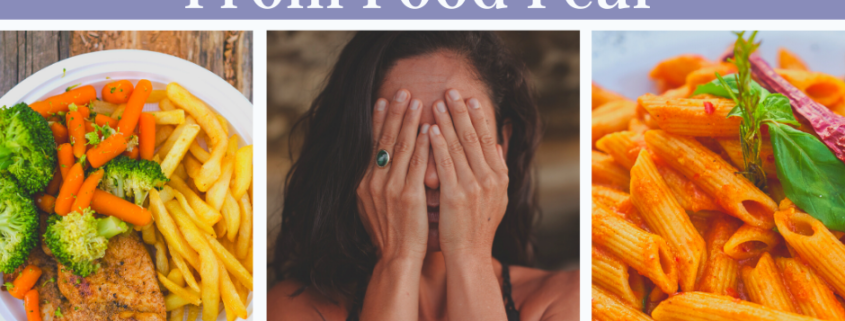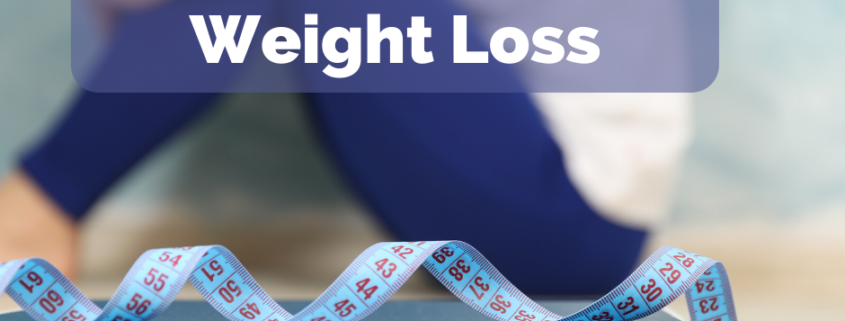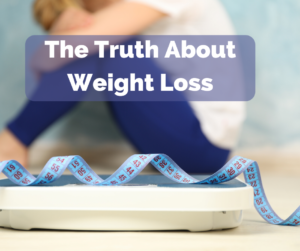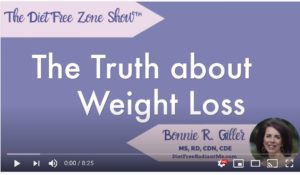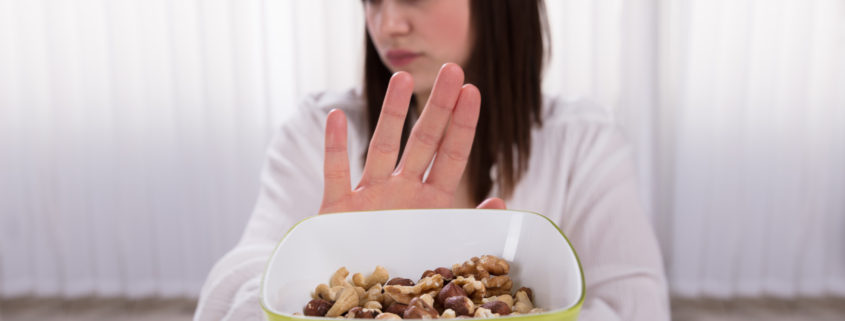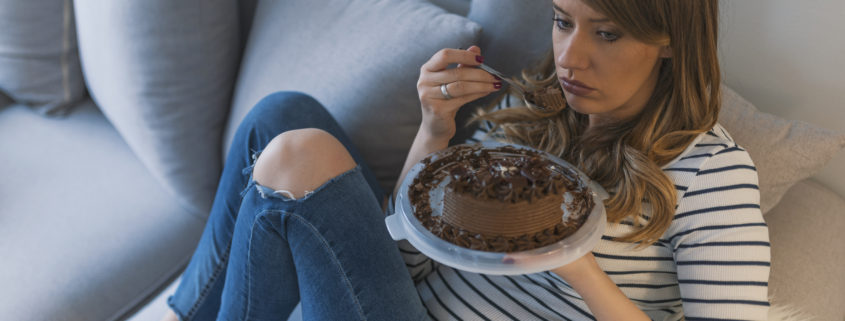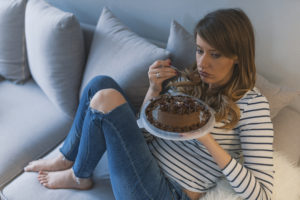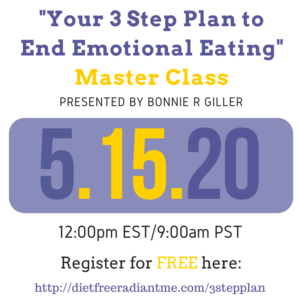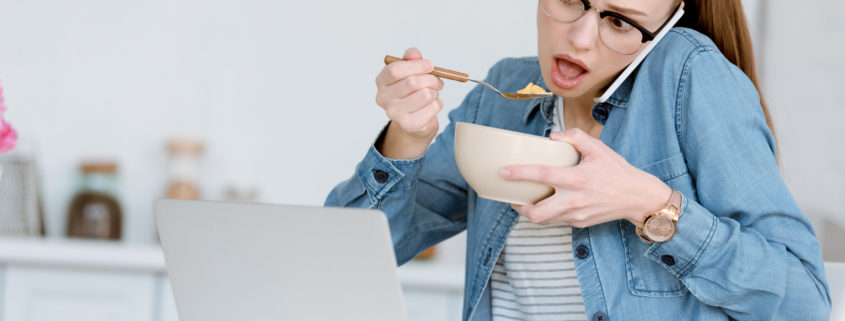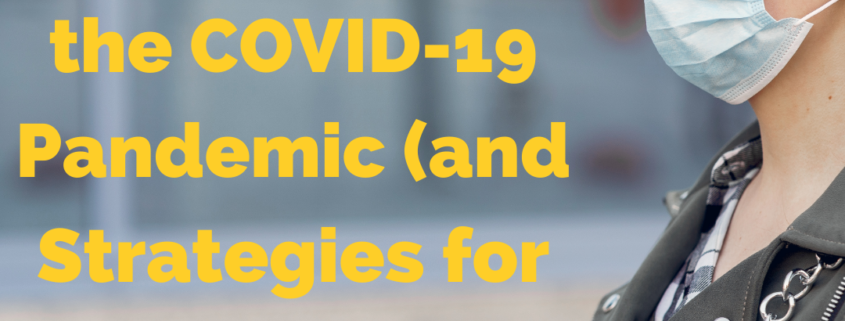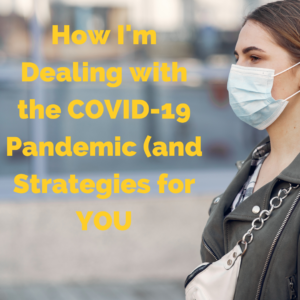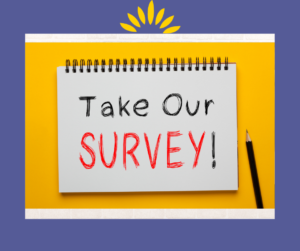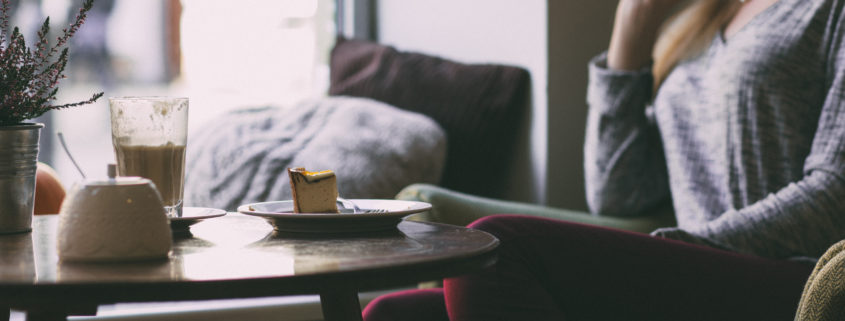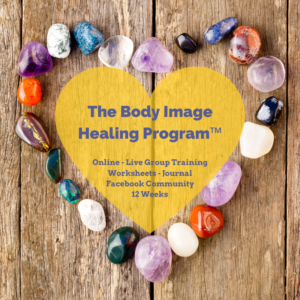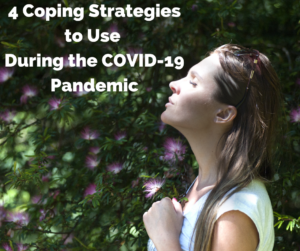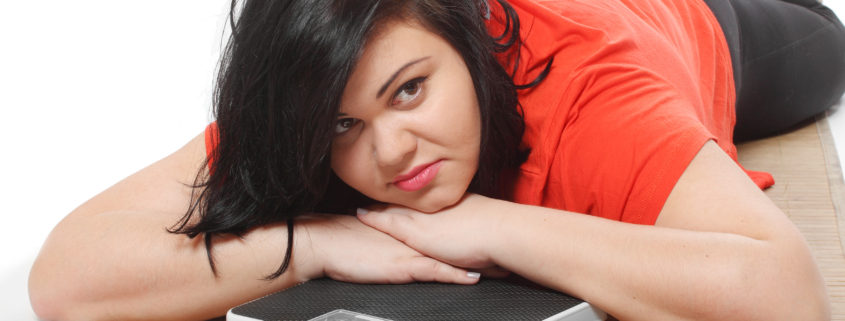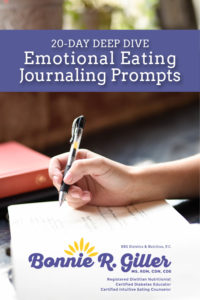How to Free Yourself from Food Fear
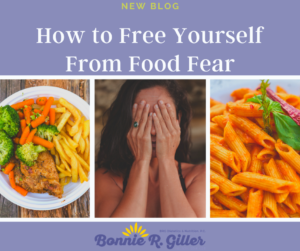 If you’re like me, the last few months have been filled with anxiety regarding the uncertainty of the pandemic. It seems like every day the news is reporting something more unnerving than the day before. With everything going on in the world, you are likely experiencing a lot of stress.
If you’re like me, the last few months have been filled with anxiety regarding the uncertainty of the pandemic. It seems like every day the news is reporting something more unnerving than the day before. With everything going on in the world, you are likely experiencing a lot of stress.
You’re not going to be able to control all of the stressors in your life, however you can take charge of some of them. Weight loss companies are aware of how stressed and anxious you are and use this to fuel your insecurities. You may have been hearing more weight loss advertisements on the radio and television lately.
Try not to let these companies take up any headspace, they are just added stress to your life. Instead, think about how wonderful your body has been over the past few months, it has helped you survive a global pandemic. Your body deserves to be celebrated!
Celebrating Your Body through Building Trust
I was thinking about ways you could celebrate your body, and I thought National Macaroni Day would be the perfect time to show your body that you DO trust it. You may not have realized it, but yesterday we celebrated this Macaroni-shaped pasta.
Let’s face it. If you’ve dieted, then more than likely you realize that pasta has been demonized as an “unhealthy” food because it’s a high carbohydrate food. This is unfortunate because you need carbohydrate, it’s the main energy source for your body. And because pasta is delicious!
Macaroni, and other pastas, are chock full of fiber, especially whole-grain varieties. Getting sufficient dietary fiber in your meals throughout the day is an act of self-care!
Fiber keeps your bowel movements regular and helps with satiety. It keeps you fuller for longer, so you aren’t rummaging through the cabinets searching for food throughout the day.
Demonizing Foods
The definition of “demonizing” is to portray as wicked and threatening.
Before I started teaching intuitive eating, it had not occurred to me that there were foods that were being demonized by the diet industry. But as I got knee deep into learning about diet culture and its sneaky ways, I came to find out that there’s a long list of foods that people are afraid to eat.
Yes, afraid! People have a ton of food fear!
“Oh no, I can’t eat _____ (fill in the blank). It’s bad for me.”
“I’m scared to eat _____ (fill in the blank), I will gain weight.”
“I’d love to eat _____ (fill in the blank), but I won’t fit into my pants tomorrow.”
Most of this fear is around weight gain. Yes, sometimes it’s about health. But often even that is under the guise of weight loss.
No one, and I mean no one, no matter what shape or size, should be afraid of food and made to feel that they are wrong or “bad” for eating certain food.
Freedom from Food Fear
One of the ways to get rid of food fear is to learn to build trust around that food. That means that you eat that food, see that nothing “terrible” happened (i.e. you didn’t gain 5 pounds over night), and then eat it again.
I am not talking about binge eating on these foods. Nor am I speaking about “see it, want it, eat it” without any thought given to eat.
That is a BIG misconception about Intuitive Eating. Those who are hesitant to begin this journey think they will “lose control” (their words) around foods. I’ve said this multiple times but it is worth repeating:
Intuitive Eating is NOT about instant gratification!
When you embark on the journey towards giving up dieting to reclaim WholeBody Trust™ through intuitive eating, you are learning to be rid of the food fear and body worry that has plagued you for so many years and decades. It’s a feeling of freedom of not being bound to the chains of dieting! It’s about having pleasure and satisfaction in your meals, without guilt. It’s about learning to tune inward to listen to what your body needs and wants. And to be able to trust it.
For how many more years will you be at war with food and your body? Isn’t it time you gave yourself the gift of peace around food?
Click HERE to schedule a complementary call with me and let’s figure out the best way for you to start this journey.

